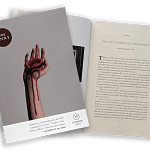Reading list for episode:
“John Pistelli,” by Blake Smith
“The Souls of Yellow Folk, by Wesley Yang,” by John Pistelli
“The Souls of Yellow Folk—A Review,” by Daniel Oppenheimer
“Platonic Complex: Why Do the Intellectuals Rage?"“ by John Pistelli
“The Face of Seung-Hui Cho,” by Wesley Yang
Critic, novelist, and sorta-academic
and I have two things on our agenda for this episode of the podcast. The first is , the author of the 2018 essay collection The Souls of Yellow Folk and arguably the single most influential writer of the past decade when it comes to articulating the basic premises of the more substantive anti-woke perspective. John and I both wrote early reviews of Yang’s book, and both of us have remained relatively close Yang-watchers.My review, though it included a few modest criticisms of the book, was immensely admiring. Of the book’s centerpiece essay, “The Face of Seung Hi Cho,” I wrote:
There aren’t many essayists alive today who can sustain the level of brilliance Yang maintains in the essay for as long as he does. Zadie Smith can do it. Dave Hickey and Joan Didion could do it once, but are too old now. David Foster Wallace could do it, but although he should be alive, he is not. Ta-Nehisi Coates looked like he was on his way toward being able to do it, but he made other choices. A few other writers, maybe, but not many.
The essay doesn’t just teem with sentence-level excellence. Through all the micro-level fascination Yang has a larger point to make about what it is like to be an unlovable young man in America, a loser in the sexual and cultural marketplace, and the ways in which that loserdom intersects with and reinforces the experience of Asian-American-ness.
John’s review of Yang’s book is a much more mixed assessment. He thinks some of it is brilliant, some not, and in general takes it to task for being a rather slapdash collection of things that don’t entirely hang together. He also makes the case (accurately I think, though I don’t have the theory background to confidently affirm) that Yang misdiagnoses the theoretical ancestry of wokeness and identity politics. For Yang it is post-structuralist theory that sets the stage. John writes:
A deeper flaw … makes itself known in the concluding pages of this book, when in essays from 2017 Yang provides a detailed critique of the social justice left. He accuses its activists of having absorbed a set of lessons from poststructuralism that posit both language and institutions as nothing other than vectors of power, obviating the old liberal ambition to reform institutions by using language to persuade a majority to abandon its prejudices and alter its practices. By contrast to the social justice left’s radical ambition to bring in an egalitarian millennium through linguistic and institutional engineering, Yang concedes the manifold injuries social life deals to those who have lost its lottery while also worrying that attempts to reduce harm through new forms of undemocratic social control may only entrench new hierarchies under the false labels of peace and equality.
Why do I call this theory flawed? … Social-justice theory comes ultimately from Marxism, which is the attempt to overcome existential alienation by altering power relations within political and social institutions. Marx began as a Romantic rebel and ironist, hailing Prometheus and imitating Sterne, until he became convinced that his alienation could be ameliorated through a total social transformation, one premised on what we now call identity politics. What differentiated Marx’s scientific from his precursors’ utopian socialism was precisely the identification of a mechanism—in the form of a social class—that could effect the transformation of an inegalitarian society to an egalitarian one. A social class whose exploitation was the engine of the entire system could, by resisting that exploitation, bring the system to a halt; having been exploited, this class would not replicate exploitation in its turn but rather abolish the class relation as such
John and I talk about the brilliance of Yang at his best; his snarky aside, in his review, about my review; his subsequent penance for his snarky aside; the possible connection between Yang and old school neocon Norman Podhoretz; and Yang’s recent descent into anti-trans, anti-woke monomania.
The other thing on our agenda is the emergence of a newly influential cohort of writer intellectual types who earned their PHDs in humanities fields—in particular English and English-adjacent departments—who are exerting influence primarily through non-academic channels.
They are writing for high or middle brow magazines—The Point, Compact, American Affairs, Tablet, etc—or, as in John's case, they're writing the vast majority of their words for their own websites and newsletters. I proposed this to John in an email exchange before our conversation, and he wrote:
I do see what you're getting at with the post-/para-academic set and the full emergence of the humanities into the online public sphere. ... I would personally draw a distinction between people I see as trying to transmit to the public the current ethos of their academic fields (
would be the chief example here, probably also and Jon Baskin) and more strictly renegade figures making a public bricolage of academic theories past and current extra-institutional or countercultural energies (e.g., Geoff Shullenberger and, well, me), with Blake Smith and JEHS somewhere in the middle). From the perspective of a certain kind of, say, economist, though, this might be the narcissism of small differences, as we're all talking various sorts of unverifiable gibberish! (Not meant as self-deprecation: I am only interested in unverifiable gibberish.)
Some of these folks have academic posts, but often rather marginal ones (John is adjunct at the Minneapolis College of Art and Design, for instance;
is at the City University of Paris). Other have left the academy entirely. That these people constitute a coherent group, I should say, is very much a hypothesis in progress. I described it to John, when inviting him on the podcast, as a "very wobbly, inchoate hypothesis." My hope is that it is slightly less wobbly and inchoate by the end of our discussion.John is the author of four novels—The Class of 2000, The Quarantine of St. Sebastian House, Portraits and Ashes, and The Ecstasy of Michaela—as well as diverse short fiction, poetry, and literary and cultural criticism that has appeared in many venues. He writes a weekly newsletter on literature, culture, and politics at SubStack. A longtime teacher with a Ph.D. in English, he has uploaded the lectures for two full university literature courses at YouTube, alongside other lectures, audio essays, and audio fiction. His fifth novel, Major Arcana, is currently being serialized for paid subscribers to his newsletter. I reached out to John after , a writer we both follow, wrote a whole post on his newsletter about how great John is. Here’s a bit of what Blake wrote about John:
John Pistelli is my favorite critic—one of the few people I ‘read,’ in the sense of regularly checking his substack/tumblr (GrandHotelAbyss) and recommending to my friends (I am a very poor ‘reader’; I don’t have much room in my head for contemporaries, or maybe I already have too much room devoted to them and have to tetchily defend the cramped remainder from my own tendency to envy, revile, etc., them—one of the reasons my Twitter is locked!). He’s erudite—with an easy, expansive mastery over the modern canon and its scholarly-critical adjuncts—and abreast of ‘internet culture’ in ways that I’m not but (mostly) appreciate someone else being (more from the implied ‘however’ later).
















Share this post